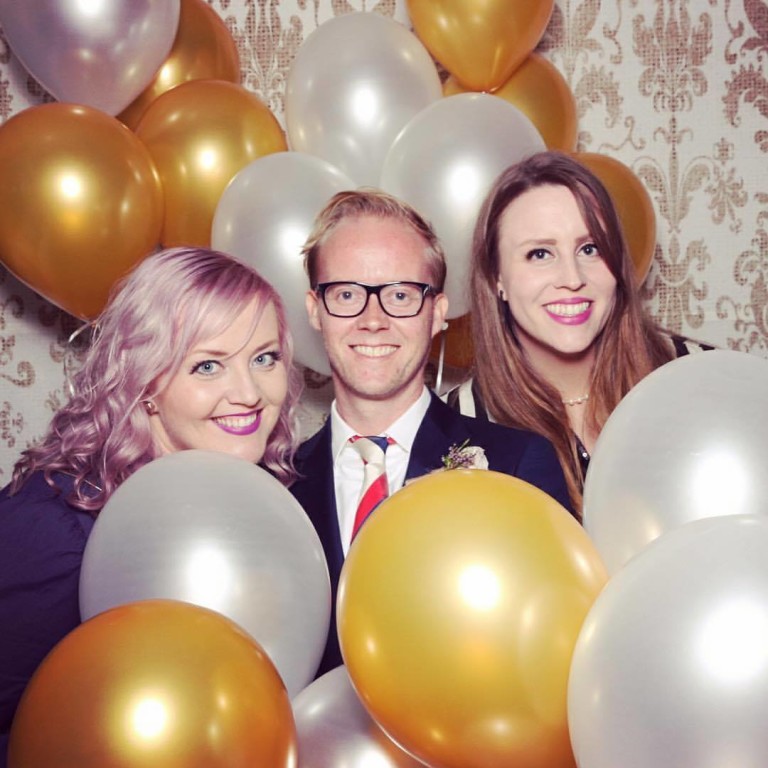In Iceland most people spend New Year’s Eve with family or close friends. It’s generally considered important to be with your closest ones when the clock strikes 12, and only after that you go out for a party with a bigger crew.
With Eva María Þórarinsdóttir Lange, her girlfriend Birna Hrönn Björnsdóttir and their partner and friend, Hannes Pálsson, it used to be the same. But after Pink Iceland came into existence, and practically became their life, they found themselves in a complex situation.
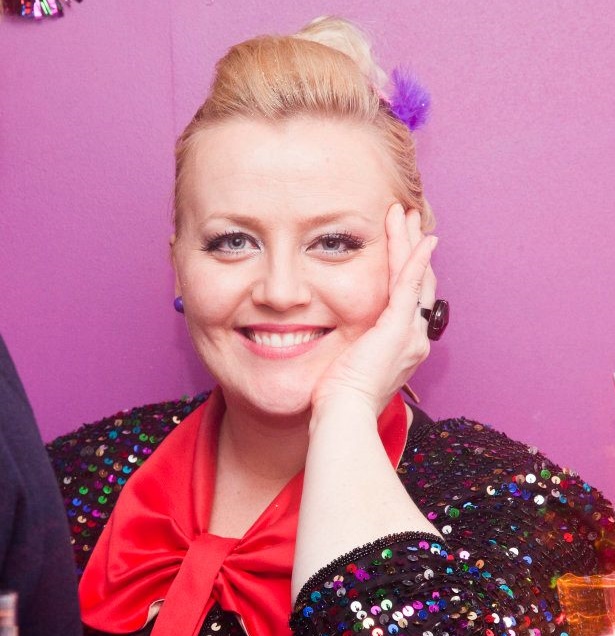
“Many of our guests wanted to come over for Christmas and New Year’s. We wanted to be able to give them that, but we didn’t want to sacrifice our own holidays. Birna and I always have a big New Year’s Eve party for our friends and family at home. We decided to open that up to our foreign guests so they can experience a real Icelandic New Years party.”
Eva María and Birna Hrönn live in the centre of Reykjavík. Their apartment has a great big balcony with a view and a big living room. Perfect for parties! “First we go to the classic bonfire, then we go to dinner at a downtown restaurant, followed by a walk up to Hallgrímskirkja for shooting fireworks. There, we have this beautiful moment, where each guest shoots his own personal message out into the world. Unlike Icelanders, most of our guests have never lit fireworks before so this is really a wonderful moment.”
“Birna and I always have a big New Year’s Eve party… We decided to open that up to our foreign guests.”
Then comes the party. “People just love coming to a real person’s home. We keep it real and we never put up a show or entertain our guests. It’s a real house party, where you can throw off your shoes and wear socks if you feel like, cuddle up in the sofa, chat away with an Icelander, eat “laufabrauð” [e. leaf bread, most often eaten around Christmas] and make toasts for the New Year. This kind of an atmosphere isn’t usually up for sale.”
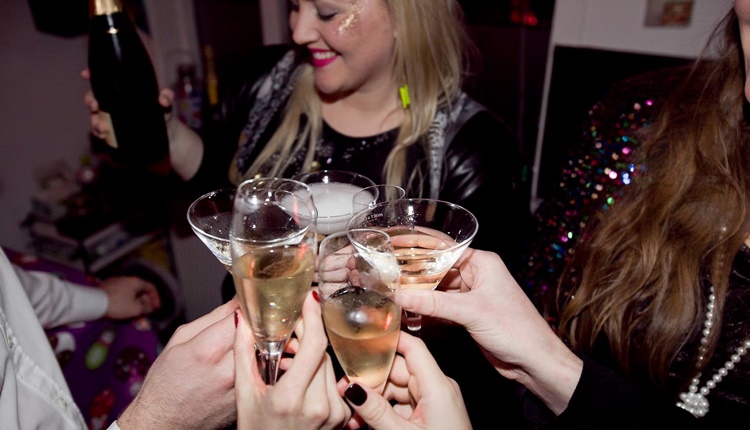
They invite all their Icelandic friends and family members, and about 20 foreign guests.
“In every party we’ve held so far lasting friendships have been made. There has to be a good balance between locals and foreign guests. We trust our guests with all of our personal belongings. It’s all based on beautiful mutual respect, just like our business.”
GROWING UP IN ITALY
If you’ve ever met Eva María you probably connect her with happy times and a super-light, colourful spirit. Glimmer is even is her middle name, according to Facebook at least. Even so, when the holidays approach and you would expect her to happily pull out the Christmas decorations like the likes of her do, she turns inwards. She is not a Christmas child. Not since she was eight years old and moved to Naples with her mom, to live with her new Italian husband and his family.
We meet at a café in downtown Reykjavík, just a few steps away from her home in the centre. The plan is to talk about her Christmas rituals, and not before long the talk brings us to her childhood in Naples.
“Really, you grew up in Naples?!” I ask dreamily, remembering a day years ago, getting lost in the crooked streets of the ancient city in the south of Italy and loving it. “I love Naples,” I say, but she quickly pulls me back to her reality. “You do?” she says, and the tone of her voice tells me that here we have a story. Turns out she never wandered the streets of Naples alone. She was never allowed to.

“I was overprotected in Naples, which is a big city, considered to be quite dangerous. In Iceland I was the kind of kid who liked playing outside, I didn’t play with dolls, just balls, bicycles and that kind of stuff. When we moved to Italy I was practically locked inside and I felt that freedom had been taken away from me. I tend to get this unsettling feeling in my stomach when Christmas approaches. It’s like some kind of a disruption in my system which I have a hard time controlling. I think it is because I never really liked Christmas in Italy. I always used to miss the Icelandic Christmas and I dreaded the Italian family Christmas parties. Family life was quite special there. Now I actually look forward to Christmas and it’s a heartwarming feeling to be a part of a tradition I’ve created with my family and friends.”
“I felt alone with those feelings and I tried to suppress them … Moving to Iceland helped me come to terms with being a lesbian.”
She was never able to conform to the role of the woman in society in Italy. “The woman is supposed to stay at home, cooking and cleaning. That is what my mother does and has been doing since 1989. Sure, in Iceland she was a housewife, but a kind of a “party” housewife. And by that I mean that our house in Iceland was like a train station, alive! That’s how I like to have my home. In Naples you are taught that women are second class people. So many little things used to bother me over there. When one of my friend’s father was having an affair, my friend said: “What do you expect? He is a man and he has his needs.”
When Eva María started being interested in girls, life became even more complicated. “I think I was 8 or 9 when I first told my mother that I thought I would never marry a man. She took it as a statement about not getting married at all. I was around 13 or 14 when I mentioned it again and she said: “Don’t be silly, you’re just going through a phase.” Still today it surprises me how little impact this upbringing had on me. The most logical path for me would have been to keep living there and marrying an Italian man, repressing who I was. But I refused to get into that mindset.”
STILL INSIDE THE ITALIAN CLOSET
Eva María moved from Italy and back to Iceland when she was only 15 years old. Last October she visited her home town again, accompanied by her partner Birna, Hannes, and his partner Villi. Ten years had passed since she last visited and Birna had never met most of her family members. It was only on the same day they came that her mother finally told her husband that Eva María is gay.
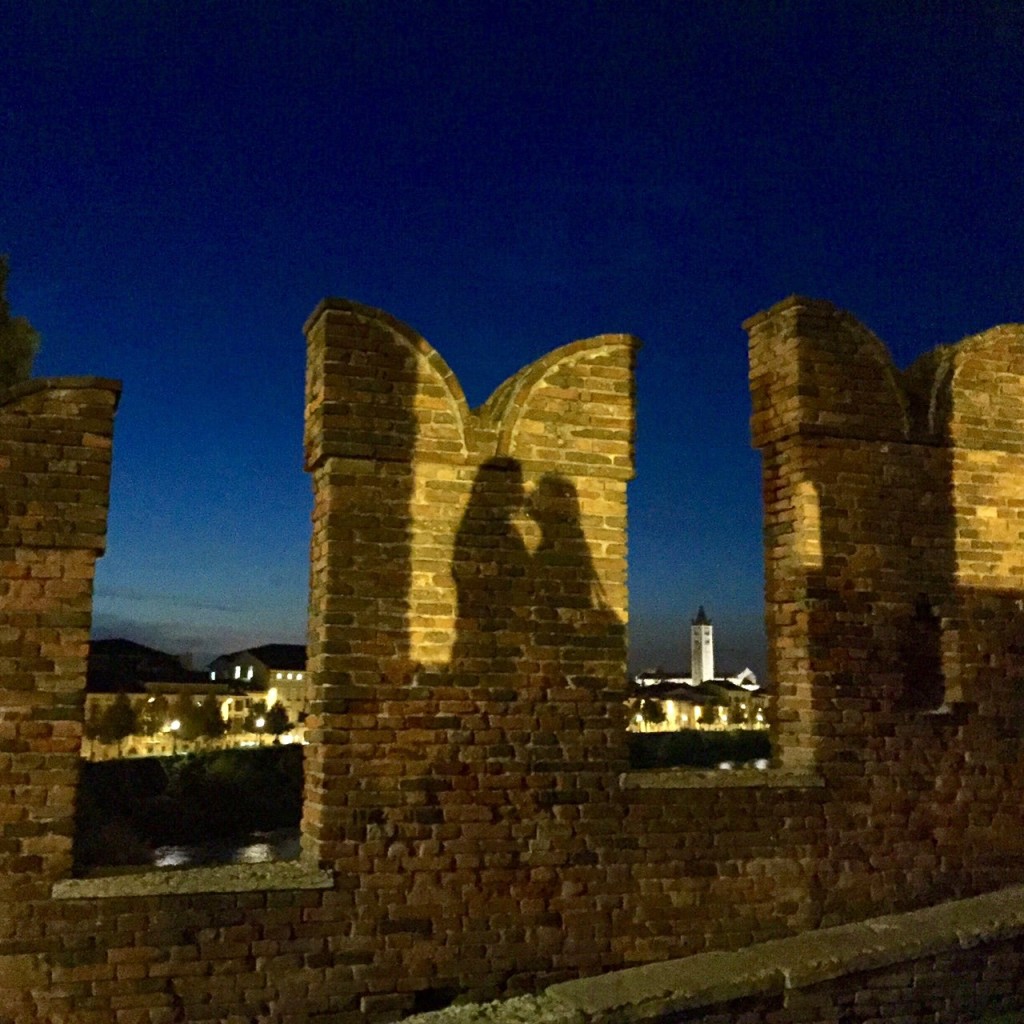
“He took it okay, it didn’t seem like a big deal although it wasn’t discussed at all. I don’t know why my mom didn’t just tell him 20 years ago, I don’t know what she thought would happen.”
The four friends travelled around Italy. Almost every time they booked double rooms the hosts switched the names of the couples, listin Eva María as the wife of one man and Birna the wife of the other. When they went to parties, everyone thought they were two straight couples.
In the southern part of Italy being gay is not accepted. The rest of Eva’s Italian family still even doesn’t know that she is a lesbian. It seems strange that someone who is as outspoken and important in the queer rights scene here in Iceland is still living a double life.
“It’s ridiculous, I know. But this is very important to my mom and I feel like I have to respect that. So, in reality I am still living a double life, one here and another there. Of course I would prefer to tell my Italian family. I feel like I have nothing to lose. If they would all stop talking to me I would simply feel sorry for them.
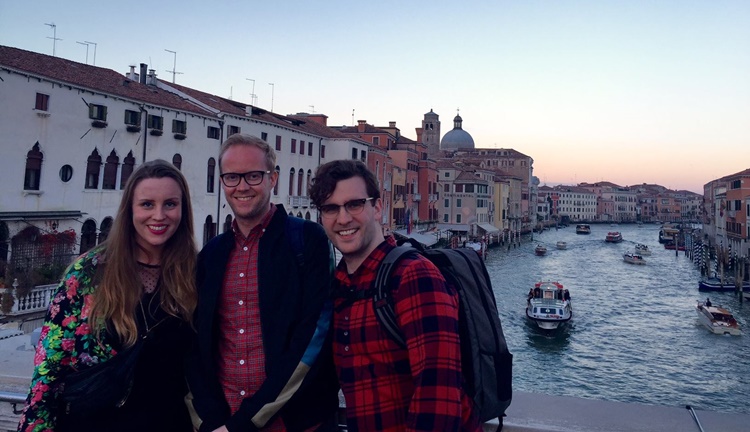
When Birna and I were at the Vatican, and a group of nuns came walking by, we spontaneously kissed right in front of them. We enjoyed seeing the look on their faces. We don’t mind shaking things up. But it’s for my mother’s sake that I don’t tell my Italian family about being a lesbian. It’s important for her. She still lives there and I don’t.”
HOME SWEET HOME
There’s always a bright side to every story. Growing up in Italy, Eva María learned to appreciate her home country, which she always associated with freedom. She had also learned to trust in herself and to believe in her gut feelings. She felt that she was supposed to move back to Iceland, and at 15 she left Naples to move back. So, as a complexed teenager, she sat down in an Icelandic classroom, for the first time in a very long time. Her goal was to finish the final exams of primary school which would give her access to an Icelandic high school.
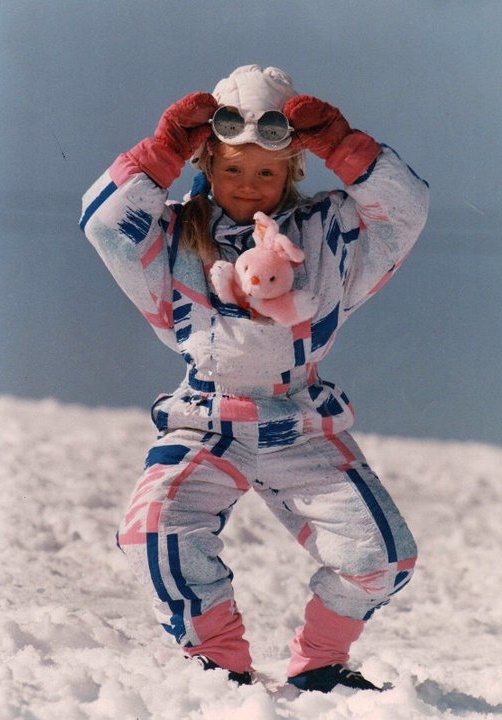
“Moving to Iceland helped me come to terms with being a lesbian. Still, I didn’t know anyone else who was. At that time there was no platform on the internet that I knew of where you could find people like yourself or at least know they existed. I felt alone with those feelings and I tried to suppress them. I had boyfriends to try to prove it to myself that I wasn’t a lesbian.”
She focused on passing her exams. She had to pass math, Icelandic, English and Danish, so her experience from the Italian education was not much of a help. “I had never been in school in Iceland before for more than a few months at a time, so I was a kind of a challenge for the school system. They had never had a student that age, who had hardly learned any English. I hadn’t learned Icelandic either nor Danish. Two schools even denied taking me in, but Hlíðaskóli luckily accepted me. I went all-in and aced the exams.”
“We’ve heard that some people … say that we are simply capitalists … but our job is our life and we do it with queer passion straight from the heart.”
In high school she turned inwards. “No one remembers me from MH [abbreviation for Menntaskólinn í Hamrahlíð, or Hamrahlid College in Reykjavík]. I kept a low profile. Luckily I had a group of friends I had met in Hlíðaskóli [a primary school in Reykjavík]. They saved my social life.”
WORKING WITH THE HEART
As time passed, little by little Eva María emerged from her shell and started building the life of the human right’s activist and business woman she is today. In 2007 she met Birna. “What was important for me personally, when Birna and I got to know each other, was to have a home of our own. I never felt at home in Italy, I simply lived there and I was never really happy.”
A few years after they met, in 2011, they founded Pink Iceland, “Iceland’s first and foremost gay and lesbian owned and operated travel and event expert” as their web page claims. Eva María was working in the tourism industry at the time and had noticed that none of the companies there were focusing on queer travellers.
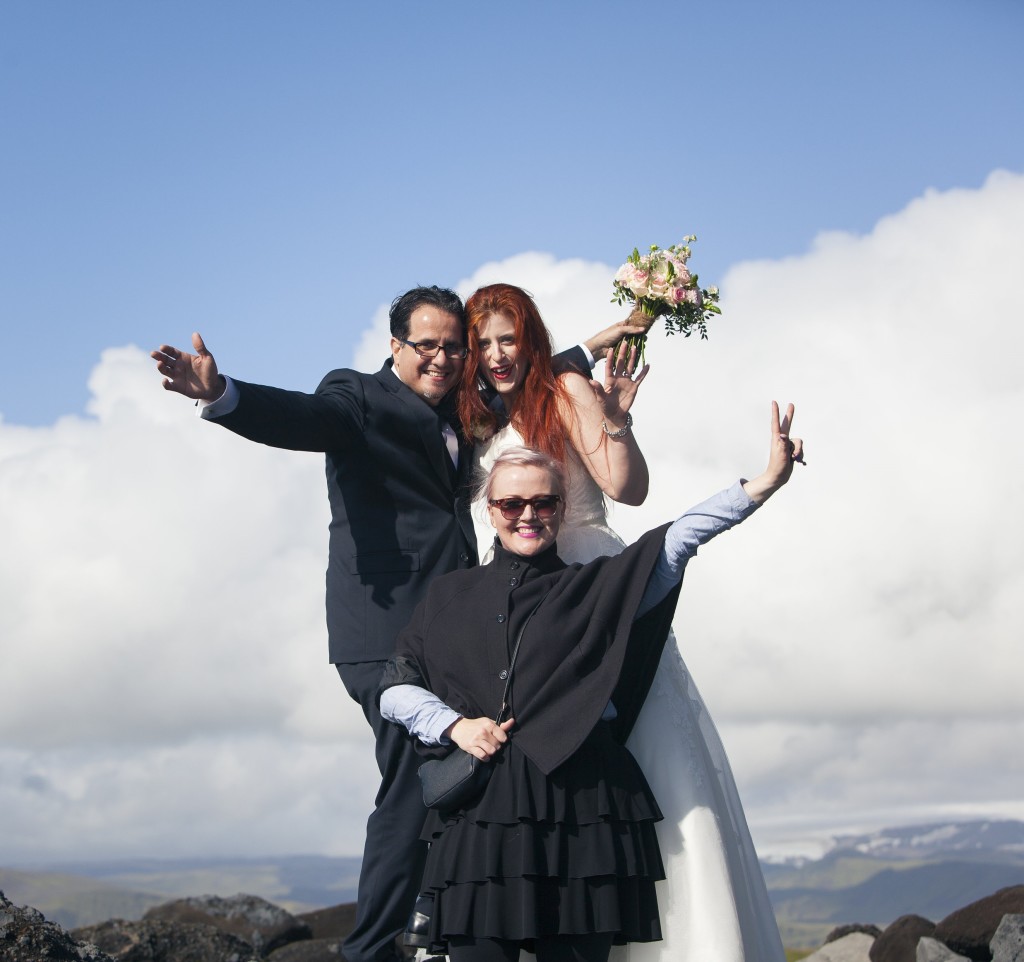
Eva María describes Pink Iceland as being born out of passion. “We were running a queer bar and a café then, I had a full-time job and Birna was studying full-time. We were busy, but our hearts were taking us in that direction and we followed. Pink Iceland is like our baby and I’ll admit that I get touchy when we get criticised. We’ve heard that some people from the queer community say that we are simply capitalists, tapping into queer money. Sure, we are running a business, but our job is our life and we do it with queer passion straight from the heart.”
They run Pink Iceland with their friend, Hannes. “We have a similar view on how to do business. We believe we are creating a new way of doing business. We are 100 percent honest about our services. We never use the “free booking” trick. There is no such thing as free in business. We have an honesty policy. We make it clear what our service is about and the guest knows that we have to take our share. People aren’t used to honesty anymore.”
An important side of what they offer is 24/7 access to a real human being. Personal service is what it’s all about. “We do our best to meet all of our guests, which is a crucial part of our service. Sometimes they’ve been following us on Instagram for a few years and when we finally meet they hug us as if we were old friends.”
FILTERING OUT THE MEAN PEOPLE
Pink Iceland is growing fast and only this year three people have been added to the group of staff. Now six people work at the office down town Reykjavík and many more when you count the photographers, videographers, celebrants, singers, hair & makeup stylists, cooks, bakers, drivers and other contractors Pink Iceland depends on.
The demand for their services is high and many business savvy friends of the three owners have pointed out that the agency could grow much bigger without the queer focus. However, the fact of the matter is that about half of their customers are straight.
Eva María says the queer stamp works as a filter against mean people, as people exist who do not want to do business with a gay owned company that caters mainly to queer clientele. “We are not interested in their business. We serve all, as long as they are not mean. We only work with nice people. We’ve done business with people with a bad attitude but that only happens once. The same goes for the people who use our services. After all, we believe that is the only right way. Our long-term goal is that Pink Iceland becomes a way of living, of thinking and doing business. That people will say: “We did it the Pink Iceland way.” That’s our dream.”
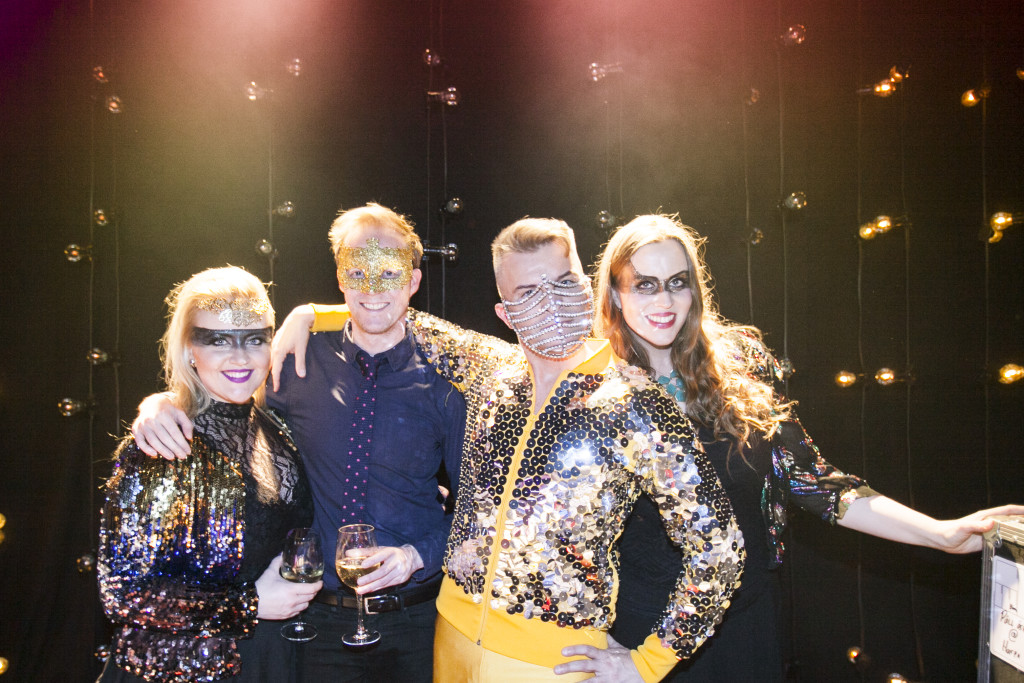
Main photo: The Pink Team Eva María, Hannes and Birna.

